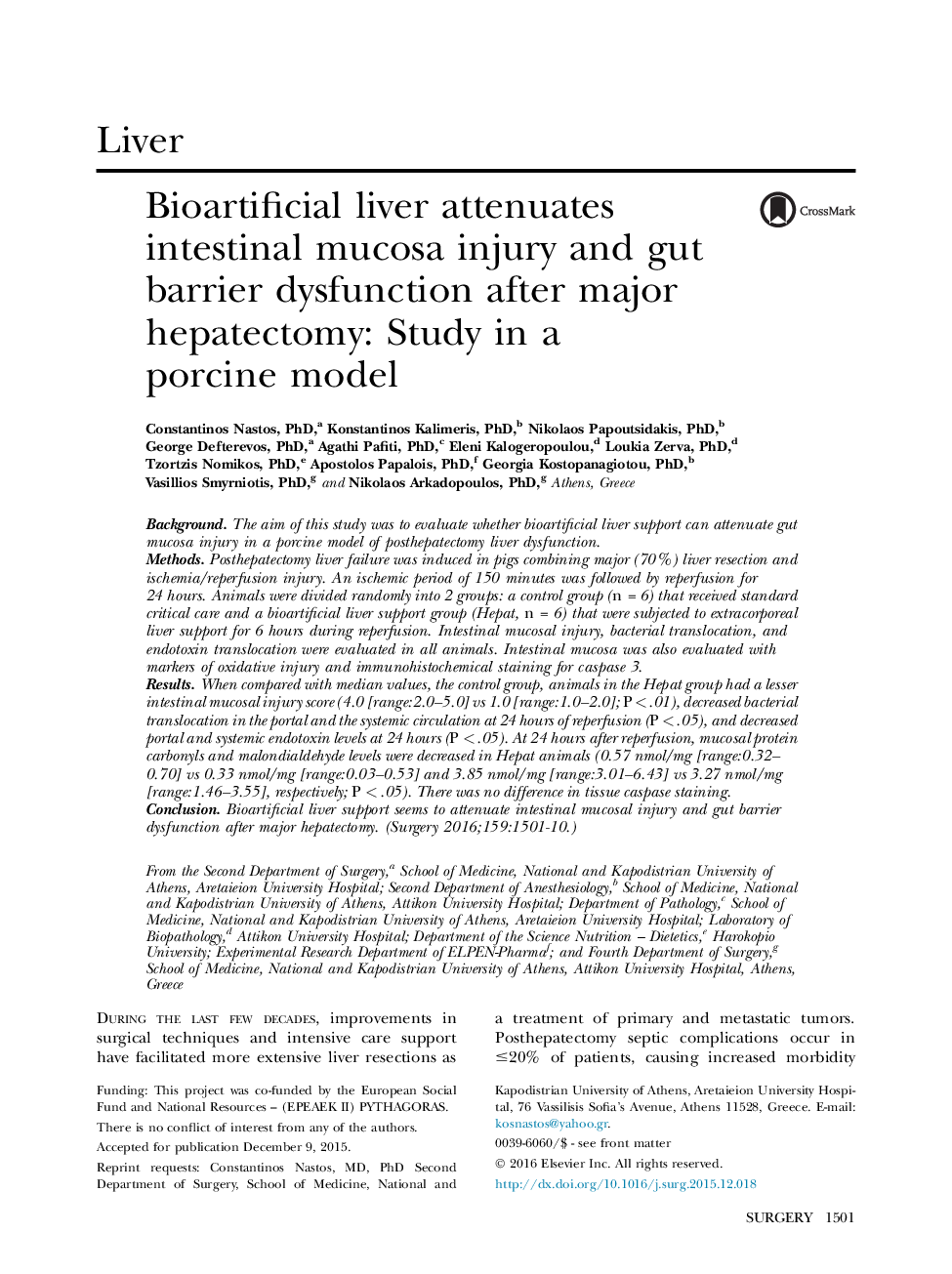| Article ID | Journal | Published Year | Pages | File Type |
|---|---|---|---|---|
| 4306564 | Surgery | 2016 | 10 Pages |
BackgroundThe aim of this study was to evaluate whether bioartificial liver support can attenuate gut mucosa injury in a porcine model of posthepatectomy liver dysfunction.MethodsPosthepatectomy liver failure was induced in pigs combining major (70%) liver resection and ischemia/reperfusion injury. An ischemic period of 150 minutes was followed by reperfusion for 24 hours. Animals were divided randomly into 2 groups: a control group (n = 6) that received standard critical care and a bioartificial liver support group (Hepat, n = 6) that were subjected to extracorporeal liver support for 6 hours during reperfusion. Intestinal mucosal injury, bacterial translocation, and endotoxin translocation were evaluated in all animals. Intestinal mucosa was also evaluated with markers of oxidative injury and immunohistochemical staining for caspase 3.ResultsWhen compared with median values, the control group, animals in the Hepat group had a lesser intestinal mucosal injury score (4.0 [range:2.0–5.0] vs 1.0 [range:1.0–2.0]; P < .01), decreased bacterial translocation in the portal and the systemic circulation at 24 hours of reperfusion (P < .05), and decreased portal and systemic endotoxin levels at 24 hours (P < .05). At 24 hours after reperfusion, mucosal protein carbonyls and malondialdehyde levels were decreased in Hepat animals (0.57 nmol/mg [range:0.32–0.70] vs 0.33 nmol/mg [range:0.03–0.53] and 3.85 nmol/mg [range:3.01–6.43] vs 3.27 nmol/mg [range:1.46–3.55], respectively; P < .05). There was no difference in tissue caspase staining.ConclusionBioartificial liver support seems to attenuate intestinal mucosal injury and gut barrier dysfunction after major hepatectomy.
